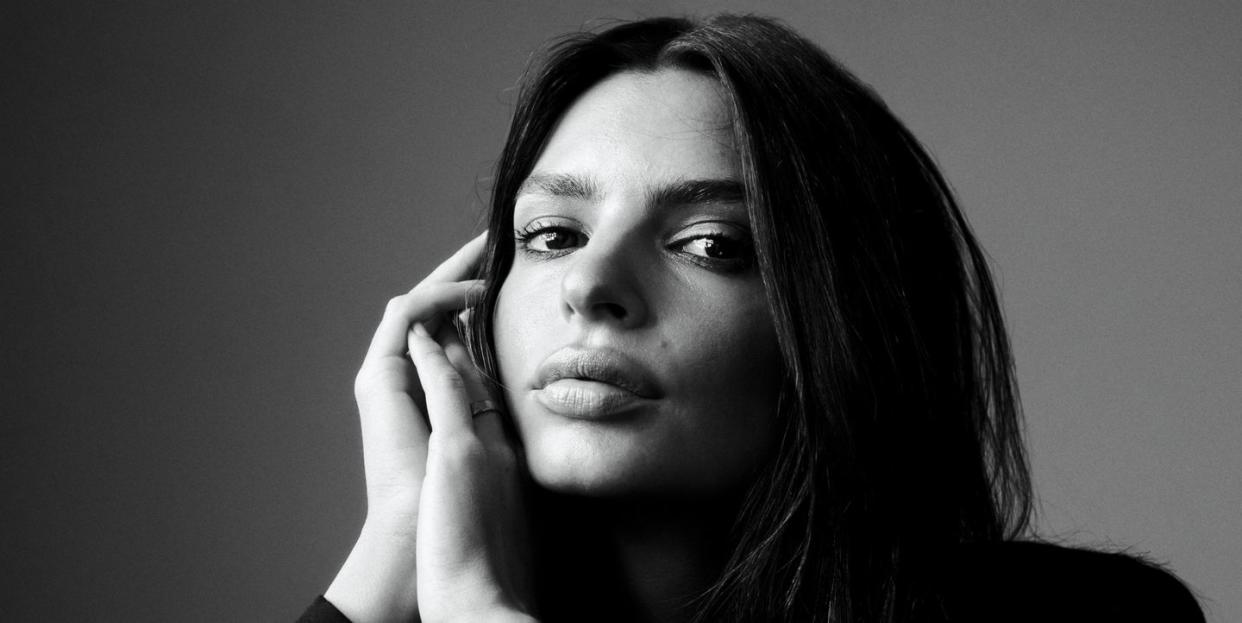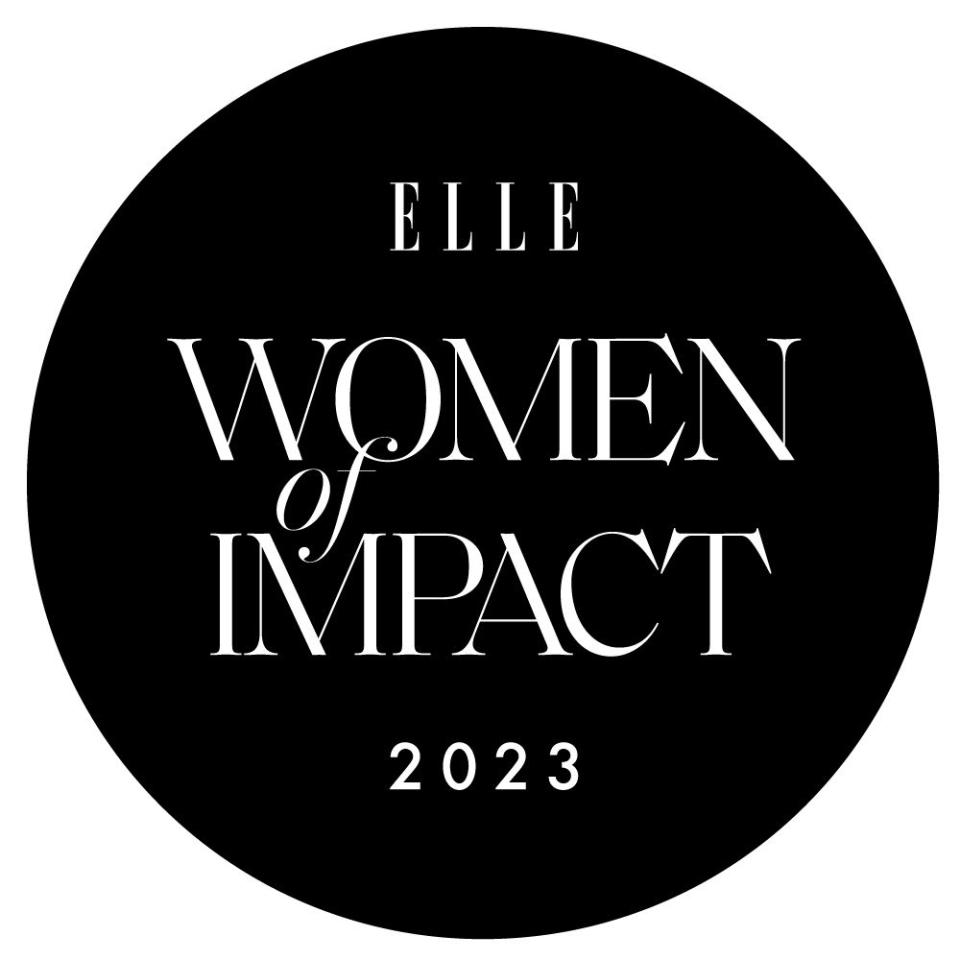Emily Ratajkowski’s Bitch Era Is Going Just Great, Thanks

"Hearst Magazines and Yahoo may earn commission or revenue on some items through these links."


You may have heard that Emily Ratajkowski is in her bitch era. Perhaps it was when she declared that fact to Hoda and Jenna on The Today Show, of all places. Or when she founded her media company, Bitch Era. (That was going to be the name of her podcast, too, but she ultimately decided on the more tempered High Low.)
Said era so far has looked like this: off-the-cuff TikToks, a healthy post-split dating life, and a new, uncensored persona. That wasn’t always the case. B.B.E. (before bitch era), Ratajkowski was more concerned about how she was perceived. “Control is a huge theme in my life,” she admits. When her debut essay collection, My Body, came out in 2021, “I was like, please God, let the world give a shit about my brain. I felt very timid,” she remembers. “I was careful not to wear or post anything sexy.” (There were a lot of turtlenecks involved.)
Then something cracked open. Part of it was a review of the book that, she says, “talked more about an Instagram post than the writing.” The image was from a modeling shoot, and the reviewer “was describing the way that I had a lollipop near my mouth. I was like, This feels the same as slut-shaming. ‘But her skirt was so short. How dare she say these things?’ And it liberated me because I was like: Okay, well, I just don’t give a shit.”
Ratajkowski had had enough with being tempered, tame, media-trained. “I felt like I was constantly negotiating things in a way that was making me very meek,” she recalls. “I’ve stopped caring so much, which is, funny enough, an act of taking control. I’ve accepted what I can and can’t control, and found joy in things that I can. And the podcast is one of them.”

My Body
$24.18
bookshop.org
For a woman who’s so often misquoted and misread, there must be a certain satisfaction in being able to go long, as she has on episodes with everyone from Donatella Versace to Chloe Cherry. “I have this informal way of connecting to fans that I haven’t had before, that allows for nuance,” she says. “Even a TikTok is only three minutes long.” She’s drawn to guests “who have not been taken seriously by the public or are easily written off,” especially those with a background in sex work or porn. While My Body was singularly focused on herself, High Low is bringing in women with perspectives that often challenge hers. But Ratajowksi says she sees both as extensions of a larger project. Even in a post-#MeToo world, there are women we underestimate and don’t listen to: the bimbos, the sluts, the Valley girls. Changing that perception “has become a real motivator for me,” she says. Recently, Mia Khalifa came on and discussed relationship age gaps, a sound bite that quickly went viral, to the tune of over 10 million views on Instagram. What shocked Ratajkowski wasn’t the view count but the comments. “People instantly discredited her because she’s a soon to be 30-year-old former porn star,” she says. “I can’t believe that we still live in a world where people are so quick to discredit women because of their sexual history.”
Or because they, say, pose with a lollipop. Shaking off shame, she says, has changed her life. “When I was trying to control everything, nothing was different, except that I was less happy. So I’m like, why would I allow that stuff to impact me anymore?”
On being perceived as smart
“The first episode, I put up this clip where I sound very Valley girl-y. I said something about smart conversations. It got all these views and did a great job promoting the podcast because everyone was so happy to gleefully tear me down and be like, ‘Who’s had a smart conversation with these two bimbos?’ It’s funny, a lot of people, when I was doing press for the book, kept saying to me, ‘It seems like you really care about being perceived as smart.’ It became something I was embarrassed of. Now, having experienced the comment section and the response to the podcast, I’m like, ‘Hell yeah, I want to be perceived as smart—and I want all these other women to be taken seriously as well.’”
On whether she considers herself an activist
“I shy away from that word. I’m somebody who has a platform and I’m a celebrity who cares about political issues, but I’m not willing to label it as activism, just because I think that there are people who give their lives to this.”
On contemporary misogyny
“I think that the backlash to #MeToo started the second that #MeToo started. Unfortunately, our culture is deeply misogynistic. I was just talking about this with my friend who’s a Black person and we were talking about how shocking it is, but sometimes it’s as simple as just: people hate women and people are racist. It’s devastating to realize that about the world, and it feels really hard to combat.”
On the way the media twists the narrative
“I’m definitely in a giving-no-fucks period of my life. I was playing with my son, building his magnet tiles with him, and I was like, ‘Huh, I wonder if I’m going to come out of this period and be like, Damn, I really give a fuck now, and I wish I had handled things differently.’...On the Olivia Ponton [episode], I made a joke about how I attract the worst men. And immediately it’s put into the context of somebody I dated very briefly...It’s so frustrating because everything’s taken completely out of context. That episode was recorded months ago.”
On how she found her medium in TikTok
“People joke with me: ‘Do you work for TikTok? What is wrong with you? Why do you care so much about it?’ Obviously there are privacy concerns, but I think that’s true with any social media app. As far as the discourse that happens on TikTok, it’s what Twitter wasn’t able to do but wanted to do. The more unfiltered and off the cuff, the better. It’s exciting for me personally because I can put something that feels kind of glam up, but then I can have one [post] where I’m just talking about something that I was thinking about and that would maybe be a tweet. I don’t have to be in one box and provide one type of content.”
On calling out a TikTok of a sexist Taylor Swift interview
“I recently became a Swiftie. I loved her last album and I’ve seen her documentary, but I wasn’t following her career in the same way the last 10-plus years. Watching that [interview], I was so struck by how clear she’ss being about what is making her uncomfortable. I think the lens that I would’ve viewed that interview from 10 years ago versus now has evolved so much, which is why it struck me. I was in bed falling asleep and commented on it, not because I thought it was going to make headlines at all.
She’s another example of a woman who has been faced with such blatant misogyny and sexism, and yet we don’t want to admit that, because she’s powerful and successful, and also she’s white. There’s a bunch of reasons, which I think are fair and important to also bring up in the conversation, but that clip in particular was just so striking to me because she was communicating very clearly about why she didn’t feel comfortable with what was happening. And it was making everyone laugh. It actually upset me. And I think that just even that speaks to a larger thing I’ve noticed, where people don’t listen to femme-presenting people.”
Her overall project
“I want to change the way that we think about femme-presenting people in the world. That is my goal. I think that we have these associations around the feminine that are so problematic, and it’s affecting men as well. It’s affecting all of us. And it’s really important to me that that changes. That’s what I’m most interested in doing and the impact that I hope to have long-term.”
Her dream guest
“Pamela Anderson. The way that women have treated her is almost as shocking as the way men have treated her. And I’m just so curious where she is now with her perspective. I hope that she gets to have the opportunity to have control over her narrative.”
What’s next for her
“I would love to try my hand at screenwriting. To build out the media company that I founded around the podcast. I definitely would like to write future books. To try my hand at fiction, even if it’s thinly veiled, simply because I feel like the way that I exposed myself in My Body, I don’t know that I would ever want to do that again.”
A version of this story appears in the April 2023 issue of ELLE.
You Might Also Like

